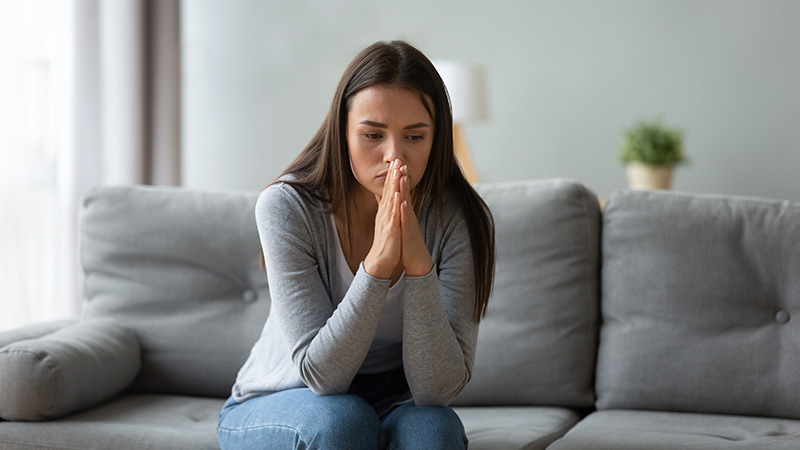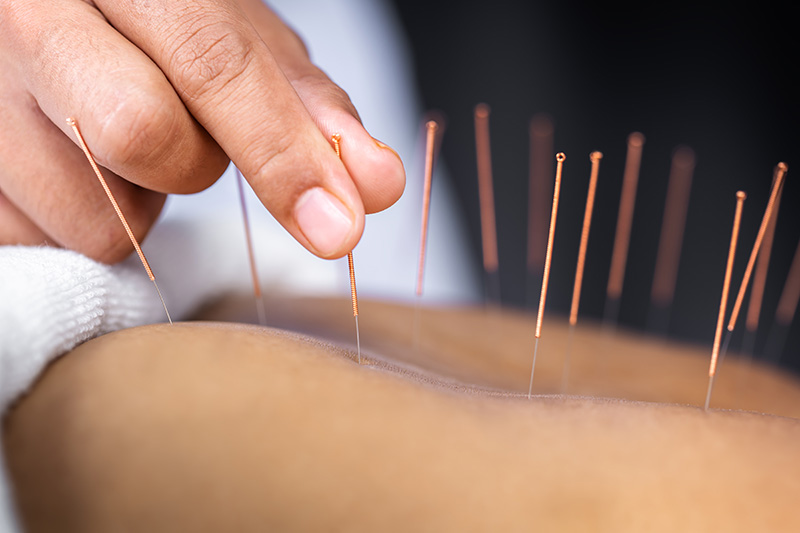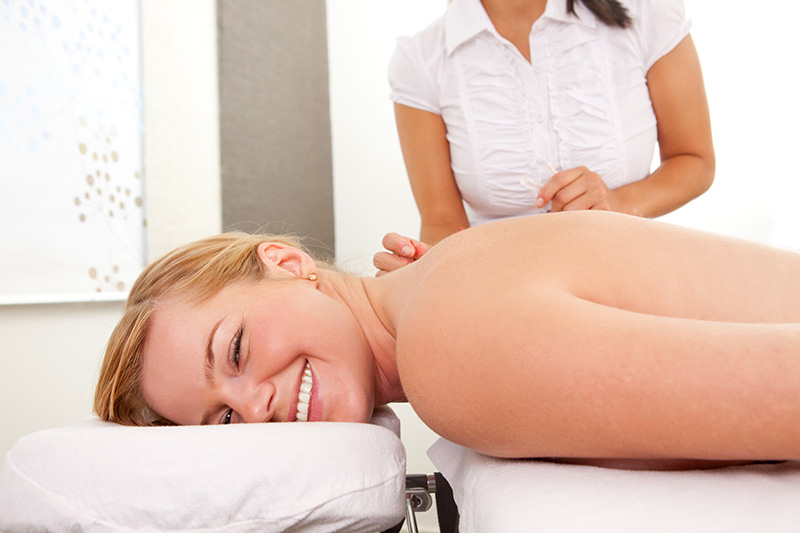Anxiety is a common mental health issue that affects millions of people worldwide. Whether it’s general anxiety disorder, social anxiety, or specific phobias, the impact on daily life can be significant. While traditional treatments like therapy and medication are widely used, alternative methods like acupuncture have gained popularity for their potential to alleviate anxiety symptoms. In this blog post, I’ll share how acupuncture works to treat anxiety, what to expect in a session, the benefits, and much more.

What Is Anxiety?
Anxiety is a natural response to stress and is characterized by feelings of worry, fear, or unease. While it’s normal to feel anxious in certain situations, chronic anxiety can interfere with daily life. There are several types of anxiety disorders, including:
- Generalized Anxiety Disorder (GAD): Persistent and excessive worry about various aspects of life.
- Social Anxiety Disorder: Intense fear of social situations and being judged by others.
- Panic Disorder: Recurrent panic attacks that involve sudden feelings of intense fear.
- Specific Phobias: Irrational fear of specific objects or situations, such as heights or spiders.
Causes for Various Types of Anxiety
Anxiety can stem from various sources, including genetics, brain chemistry, and life experiences. You might develop social anxiety due to traumatic interactions or a generalized anxiety disorder from prolonged stress. Regardless of the type, acupuncture offers a potential treatment option worth exploring.
During an acupuncture session, we insert thin acupuncture needles into specific points on your body. These acupuncture points correspond to different systems in your body, potentially helping to re-balance your energy and reduce anxiety symptoms.
Some people find relief from panic attacks through regular acupuncture treatments. The process may help regulate your nervous system, promoting a sense of calm. You might notice improvements in your sleep patterns or a decrease in physical tension after a few sessions.
While acupuncture can be effective for many, it’s important to remember that everyone responds differently, so you should discuss your specific anxiety symptoms with your acupuncturist to determine the best approach for your needs. They can tailor the treatment to target your particular type of anxiety, whether it’s social anxiety or another form.
How Acupuncture Works to Treat Anxiety

Acupuncture is a form of alternative medicine that has been practiced for thousands of years. It involves the insertion of fine needles into specific points on the body, known as acupuncture points. These points correspond with energy pathways, or meridians, that flow through the body.
When it comes to treating anxiety, acupuncture works by stimulating the nervous system and releasing natural pain-relieving chemicals, such as endorphins. This helps to reduce anxiety symptoms by promoting relaxation and balancing the body’s energy flow. Modern research suggests that acupuncture may also influence the production of serotonin, a neurotransmitter that plays a key role in mood regulation.
Types of Anxiety Acupuncture Can Alleviate
Acupuncture has been shown to be effective for various types of anxiety, including:
- Generalized Anxiety Disorder (GAD): Acupuncture can help reduce the overall levels of anxiety and stress.
- Social Anxiety: By promoting relaxation, acupuncture may help people feel more at ease in social situations.
- Panic Disorder: Acupuncture can be part of a broader treatment plan to manage panic attacks.
- Stress-Related Anxiety: Acupuncture is particularly effective at treating anxiety that stems from stress.
Acupuncture for Treating Anxiety and Depression in Women
Women are more likely than men to experience anxiety and depression, and acupuncture can be a valuable treatment option for these conditions. Hormonal changes, life transitions, and stress are common triggers for anxiety and depression in women. Acupuncture can help regulate the body’s hormonal balance and provide relief from these symptoms.
Studies suggest that acupuncture may be particularly effective for women dealing with postpartum anxiety and depression. By stimulating specific acupuncture points, the treatment can help alleviate symptoms and support emotional well-being during this challenging time.
What Are the Benefits of Acupuncture for Anxiety?
One of the main benefits of acupuncture for anxiety is that it is a natural treatment option. Unlike medication, which can have side effects and lead to dependency, acupuncture is a holistic approach that aims to restore your body’s balance.
Some of the potential benefits of acupuncture for anxiety include:
- Reduced Anxiety Symptoms: Many patients report feeling calmer and less anxious after a session.
- Improved Sleep: Acupuncture can help regulate sleep patterns, which is often disrupted in people with anxiety.
- Enhanced Mood: By influencing serotonin levels, acupuncture may help improve overall mood.
- Better Stress Management: Regular acupuncture sessions can help your body manage stress more effectively, leading to a more balanced life.
What Happens in a Session?

If you’re new to acupuncture, you might be curious about what happens during a session. Typically, the acupuncturist will begin with a consultation to understand your specific anxiety symptoms and overall health. This helps us tailor the treatment to your needs.
During the session, you’ll lie down on a comfortable table, and the acupuncturist will insert thin needles into various acupuncture points on your body. The number and location of the needles depend on the type of anxiety you’re experiencing. You may feel a slight tingling or warmth as the needles are inserted, but the process is generally painless.
The needles are usually left in place for about 30 to 60 minutes while you relax. Many people find the experience to be calming and even meditative.
What are the Potential Side Effects of Acupuncture?
While acupuncture is generally safe, there are some potential side effects to be aware of:
- Bruising or Soreness: This is the most common side effect and typically resolves within a day or two.
- Fatigue: Some people feel tired after a session, which can be a sign that your body is responding to the treatment.
- Dizziness: If you’re prone to low blood pressure, you might feel lightheaded after a session.
- Emotional Release: It’s not uncommon for people to experience an emotional release during or after an acupuncture session, which can be beneficial but might feel overwhelming at the moment.
Clinical Trials on Acupuncture as a Treatment of Anxiety
Clinical trials have explored the efficacy of acupuncture in treating anxiety, with promising results. You might be interested to know that several studies have shown acupuncture can significantly reduce anxiety symptoms compared to control groups. These trials often compare acupuncture to other treatments or placebo interventions.
One notable study examined the effects of acupuncture on anxiety in patients with alcohol dependency. The results suggested that acupuncture could be a useful complementary treatment for managing anxiety in this population. You might find it interesting that acupressure, a related technique, has also shown potential in reducing anxiety symptoms.
Researchers have also compared acupuncture to more established treatments like cognitive behavioral therapy (CBT). While CBT remains a gold standard for anxiety treatment, some trials indicate that acupuncture could be a valuable alternative or addition to traditional therapies. You might consider discussing these options with your healthcare provider if you’re exploring different anxiety treatments.
Frequently Asked Questions
How long does an acupuncture session for anxiety typically last?
An acupuncture session for anxiety typically lasts between 30 to 60 minutes. The exact duration can vary depending on the individual’s needs, the practitioner’s approach, and the specific treatment plan. Some initial consultations may take longer to assess your condition thoroughly.
Can acupuncture be combined with other anxiety treatments?
Acupuncture can complement other anxiety treatments effectively. It may be combined with therapy, medication, or lifestyle changes for a holistic approach. This integration often enhances overall results, providing relief through multiple channels and addressing anxiety from different angles.
How many acupuncture sessions are needed to see results for anxiety?
The number of acupuncture sessions needed for anxiety relief varies, but many people experience improvements within 6-12 treatments. Factors like severity, duration, and individual response influence the timeline. Some patients notice changes after just a few sessions, while others might require ongoing care for lasting benefits.
Are there any specific acupuncture points used for treating anxiety?
Acupuncture points commonly used for anxiety treatment include Heart 7, Pericardium 6, and Governing Vessel 20. These points help calm the mind, reduce stress, and promote relaxation. We may also select additional points based on your specific symptoms and overall health condition.
Is acupuncture covered by insurance for anxiety treatment?
Many insurance plans now cover acupuncture for anxiety treatment, but coverage varies widely. Check with your provider to understand your specific benefits, including session limits and copayments. Some plans may require a referral from your primary care physician or a diagnosis of anxiety for coverage.
Conclusion

Acupuncture offers a promising alternative treatment for anxiety, providing relief without the side effects often associated with medication. This ancient practice can help manage various types of anxiety, including generalized anxiety disorder, social anxiety, and panic disorder, by targeting specific points on your body to promote balance and healing.
Clinical trials have shown encouraging results, suggesting that acupuncture can significantly reduce anxiety symptoms and improve overall well-being. While more research is needed, acupuncture’s holistic approach to mental health care makes it a valuable option to consider, especially when combined with traditional therapies for a comprehensive anxiety management plan.
Book a Free Consultation
If you’re looking for a natural and effective alternative in New York City to reduce stress and anxiety, call us today to book a Free Consultation to determine if acupuncture is right for you.

Lee Schwalb is a licensed acupuncturist in New York City with over 20 years of clinical experience, treating a broad range of health issues, from idiopathic pain and acute injuries to stress, anxiety and many other conditions.

